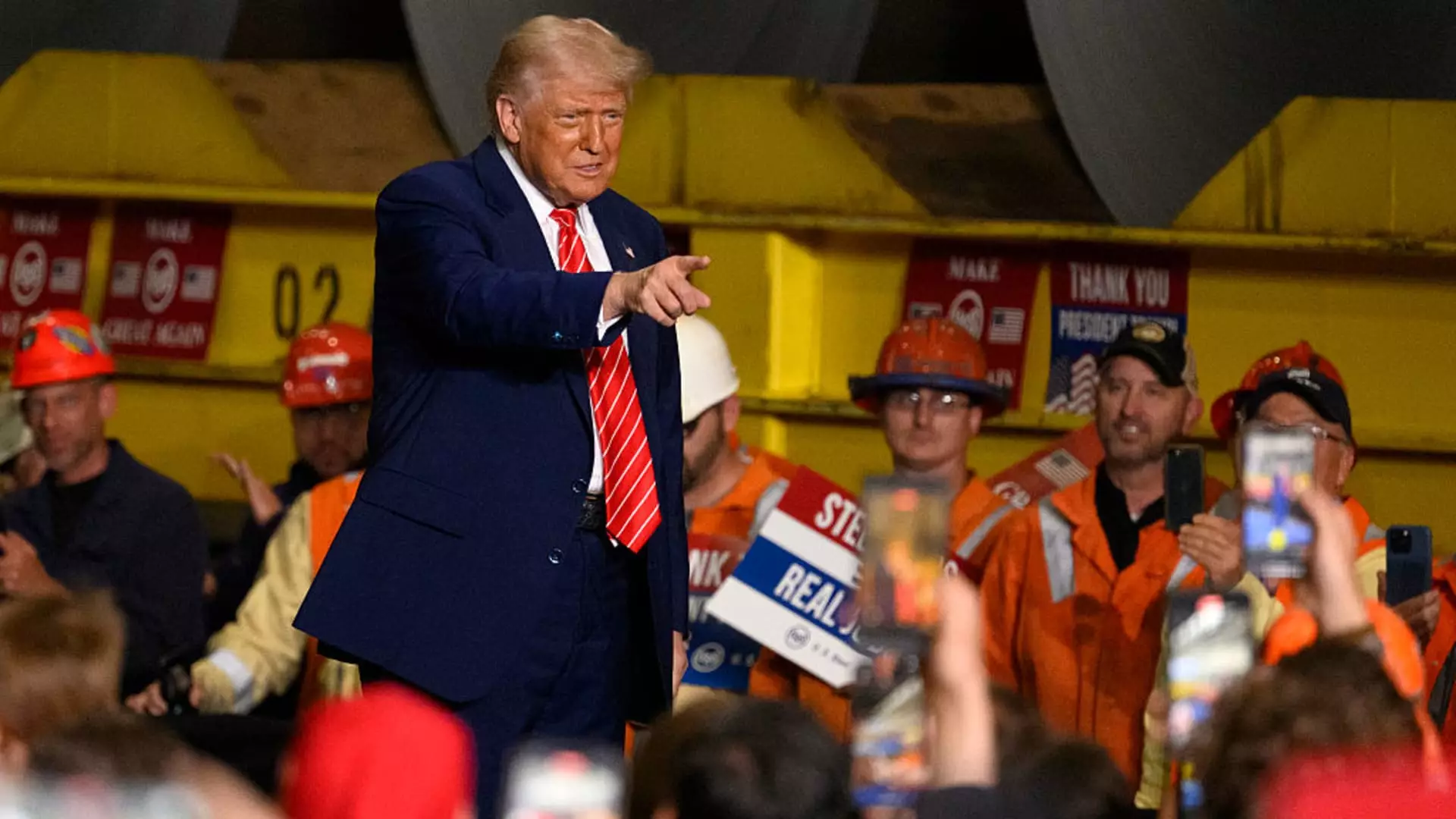In a brazen move that could only be described as reckless, President Donald Trump’s decision to double tariffs on steel imports from 25% to a staggering 50% has sent shockwaves throughout the global economy. The European Union’s sharp condemnation of this decision highlights the very real obstacles it poses to any hope for a negotiated trade agreement. With the specter of increased tariffs looming, the unwitting consequence has been to sow seeds of uncertainty that are damaging not only to American consumers but also to businesses on both sides of the Atlantic.
The EU has rightly articulated that this increase in tariffs undermines any potential for a diplomatic resolution to the ongoing trade war. By abandoning dialogue in favor of isolationist tendencies, the Trump administration is essentially gambling with the livelihoods of millions. The timing is particularly ill-advised; just as there was a glimmer of hope for negotiations to resume, Trump’s blatant escalation only exacerbates tensions. Is this truly the maneuver of a leader committed to fostering transatlantic relations? The answer is a resounding no. Rather than nurture alliances, this kind of aggression threatens to dissolve the very fabric of international cooperation that has endured for decades.
A Direct Attack on Jobs
The ramifications of these punitive tariffs extend far beyond mere economic theory. The United Steelworkers union has rightly characterized Trump’s move as a direct assault on Canadian industries and their workforce. Marty Warren, the National Director for Canada, has emphasized the profound risk posed to thousands of Canadian jobs dependent on steel and aluminum production. These industries don’t exist in a vacuum; entire communities rely on their stability for economic prosperity. By slapping heavy tariffs on steel imports, the Trump administration is placing those communities at peril, signaling just how disjointed their priorities are.
Importantly, this isn’t merely a theoretical discussion around markets and economies—these policies have tangible effects on people’s lives. The one-sided decision to impose tariffs includes a harsh collateral damage: workers caught in the crossfire who may lose jobs or see their wages stagnate as their industries face increased costs. The effects are cascading, leading to a deterioration of community well-being and influencing the broader social fabric. In the pursuit of strengthening domestic production, the Trump administration risks hollowing out the strength of communities that depend on cross-border trade.
The Reactionary Nature of Tariff Politics
It’s imperative to understand that tariff politics are not just a matter of numbers and statistics; they are inherently reactionary and volatile. Trump’s announcement took place in a politically charged setting—a rally at U.S. Steel—where the focus was more about rallying support than formulating sound economic policy. In the absence of a coherent strategy, the administration’s approach appears to be steeped in bravado rather than evidence. The potential countermeasures from the EU add another layer of complexities to the situation, suggesting retaliation rather than reconciliation. Trade wars are seldom won, and history shows us the devastation that ensues.
Compounding the issue is the recent setback faced by the Trump administration, where the U.S. Court of International Trade placed a significant check on the authority under which these tariffs were enacted. The court’s intervention leaves us to question the actual long-term viability of Trump’s tariffs. The grand strategy of using tariffs as leverage to renegotiate trade agreements may indeed be running short on realism and effectiveness. Heightened tensions, coupled with shaky legal foundations, create a volatility that few businesses can weather.
A Call for Rational Trade Policies
It is high time that U.S. trade policies shift away from this confrontation-based approach. The current trajectory not only alienates traditional allies but also invites unpredictability into what should be a structured trade environment. The economic landscape is interwoven; America cannot simply impose tariffs without expecting a backlash that will ultimately prove detrimental to its own interests. The engagement should be focused on collaboration rather than conflict, suggesting that a more diplomatic stance might yield more substantial benefits to all parties involved.
In light of the current turmoil, it’s vital that policymakers prioritize rational discourse over divisive antics. The road to fair trade is paved not with animosity, but with partnerships that elevate worker security and foster shared prosperity. Only through dialogue and mutual respect can we hope for a future where trade serves as a bridge rather than a battleground.


Leave a Reply